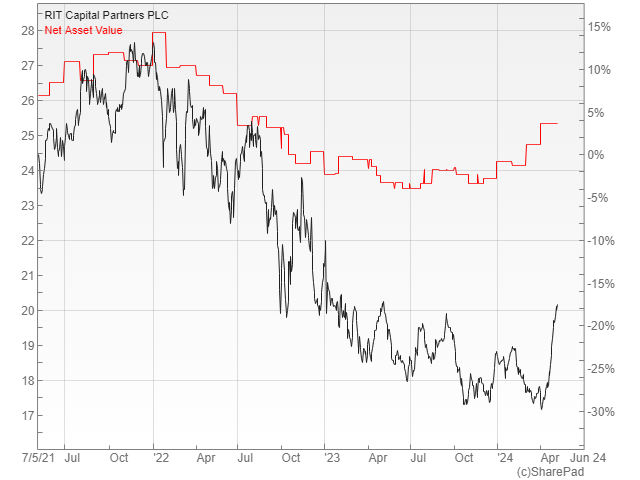Three Deep Discount Opportunities

The latest quarterly update from Capital Gearing (LON: CGT) reveals that the defensively oriented fund has recently taken advantage of a number of deeply discounted investment trusts. They think that these represent an attractive opportunity to outperform the wider equity market.
Writing in the report, manager Hassan Raza said that it has been the worst period of discount widening for decades and based on historic episodes it will take at least 25 months to get from the trough back to the pre-existing ratings.
“However, in every crisis there is opportunity and the benefit of having a portfolio with significant dry powder (in the form of cash and short dated bonds) is that we can take our time negotiating from a position of strength.”
BH Macro
One of CGT’s new positions was in the listed hedge fund, BH Macro (LON: BHMG), with the purchases taking place at discounts of up to 18%. Capital Gearing were extremely critical of the Board, who have allowed investors to ‘suffer astonishing losses’ due to their failure to keep the shares close to NAV.
The problem dates back to February 2023, when BHMG issued new shares to a value of $380m at a two percent premium, thereby increasing the size of the fund by about a quarter. Since then the performance has been poor with the NAV down by around 4.5% in the 14 months.
Unfortunately, investors have suffered an additional 20% loss over the period as the trust moved to an 18% discount, with the buybacks of around three percent of the shares in issue being insufficient to stop the decline. It looks like it was the merger of two of the largest shareholders, wealth managers Rathbones and Investec, which was responsible for the change in sentiment, with the combined holding of just under 30% creating a major overhang.
My understanding is that if any class of shares trades at an average discount of eight percent or more of the monthly NAV in any calendar year, the trust would have to hold a class closure vote. The next is due in early 2025, so the Board must decisively confront the discount or risk failing the motion, especially as one shareholder has a stake of more than 25%.

RIT Capital Partners
CGT has also made some significant additions to its holding of RIT Capital Partners (LON: RCP) at the widest discounts in at least 30 years. The trust aims to deliver long-term capital growth, while preserving shareholders’ capital, but has fallen well short of its objective in recent months.
Over the three years to the end of March RIT made a share price total return of -22.6%, compared to an NAV total return of 3.5%. This was due to a dramatic widening of the discount that currently stands at about 21%.
The derating was partly due to the large private equity allocation, with investors wary about the valuations. In order to address these concerns the Board has said that it will reduce the weighting from the current 35% to around 25%.
They have also adopted a disciplined capital allocation policy that has seen 6.2% of the shares repurchased, a move that has increased the NAV and narrowed the discount. This strategy should help to deliver some attractive returns over the medium term.

Foresight Solar Fund
Another acquisition that is worth focusing on is the purchase of the Foresight Solar Fund (LON: FSFL), which provides exposure to a diversified portfolio of solar PV and battery storage assets. Like many of its infrastructure peers it has fallen out of favour as interest rate have risen and currently trades at a discount of around 25%.
In order to address this the Board has sold its Spanish assets at a 21% premium to NAV, with the proceeds being used to reduce debt and buyback around five percent of the shares in issue. Raza thinks that they should also sell the underperforming Australian holdings to focus on their core strategy in the UK.
He says that in the absence of a clear commitment to do this, the fund may fail its continuation vote that is due in June. This would force the Board to put the portfolio into run off and return the capital to shareholders.
Even if it passes the vote and continues its policy of disposals and buybacks then investors should still see some decent returns. Much of this will be in the form of income, as the shares are currently yielding an attractive 8.5%.

Comments (0)